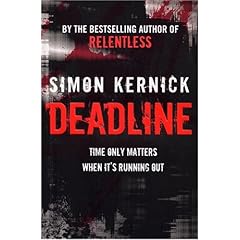This post, from Kimberly Davis, originally appeared on her Kim’s Craft Blog on 7/5/09. In it, Ms. Davis offers some sound advice for giving an effective live reading. While Ms. Davis is addressing live readings before an audience specifically, the guidance given here is equally useful when creating an audiobook or podcast.
If you are a writer, sooner or later you are going to be asked to get up and read your work before a live audience. If there is a more anxiety-producing moment in the life of an aspiring writer, then I don’t know what it is. Even for a more seasoned writer, having to get up and present your work can be a challenge.
Yesterday I participated in the reading up here at the Summer Writers Conference at Skidmore College. Previously, I had done two Faculty Readings this spring at the Cambridge Center, and yet I still found myself getting nervous and struggling a bit. Some of this was the material. The poems I was reading are at the difficult end of the scale, depending as they do on speed, tone and some athletic line-breaks. Also it was a different (and larger) audience than I was used to, and I hadn’t rehearsed beforehand. At the end of the reading, I found myself making a mental list of "what to do next time"–which I thought I would share.
Slow Down: I was struck yesterday by how many of the writers read too quickly. There were a lot of writers on the program, and so everyone was laboring under some rather strict time limitations. This is not unusual. At most readings, you will be presenting alongside other writers, and you will be given some sort of time allotment. The trick is to pick something you KNOW will fit within the time you have so you don’t have to rush. There is nothing that ruins a reading like speeding through your carefully selected words.
Read Like You Mean It: By the time you get up to read your work, you are probably going to be sick of it. Whether you are reading poetry or prose, chances are good that by the time you present it to an audience, you’ll have revised it a thousand times, and a lot of the emotion will have gone out of it for you. You’ll now see all the changes you’ve made, the things you still don’t like about the piece, the places where you’re going to have trouble reading it. But that’s not what the audience wants to hear.
What you need to present to your audience is the original emotional energy that made you write the piece in the first place, six months or six years ago. Somehow you need to find your way back into the feelings behind the piece, so that you can communicate them to the audience. I don’t think this is an easy thing for a writer to do. Most of us are not natural performers by nature. If we were, we would have gone to acting school, right?
Still, at a reading we are in essence being asked to "act out" our poems and stories–and to lead the audience through them. The way I like to think of this is that–when we read a poem or story–it becomes a "lived experience," so that as you read, you need to be aware of this and leave enough time and space in your voice and tone for the audience to experience each emotional turn and shift that you take them through.
Read the rest of the post on Kim’s Craft Blog.


 Publetariat Editor’s Note: this story comes from a U.K.-based site, and apparently, the ‘Dan Brown’ cover isn’t being released here in the U.S. The cover on the left is the U.S.-edition hardcover.
Publetariat Editor’s Note: this story comes from a U.K.-based site, and apparently, the ‘Dan Brown’ cover isn’t being released here in the U.S. The cover on the left is the U.S.-edition hardcover.